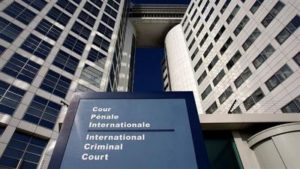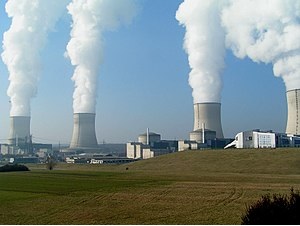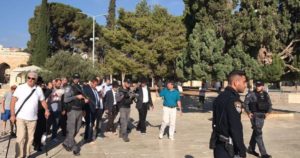“To judge by recent developments in Ukraine, ‘Russia is putting itself’ on the wrong side of history.” – Barack Obama.
by Barry Grossman*
 President Vladimir Putin: There has been little has been more surprising in these events than the rush by some people to embrace Putin as a hero, as if he is some kind of shining knight immune from corruption and motivated by principle rather than self-interest.
President Vladimir Putin: There has been little has been more surprising in these events than the rush by some people to embrace Putin as a hero, as if he is some kind of shining knight immune from corruption and motivated by principle rather than self-interest.
By the West’s selective legal and moral standards, Vladimir Putin’s legitimacy as Russia’s President is questionable. Quite apart from the fact that he is now serving an unprecedented 3rd term as Russia’s President, it is not possible to overlook his roots as a KGB insider and the way he was originally handpicked as Boris Yeltsin’s replacement by his daughter and the new oligarchs who held sway over Yeltsin then known as “The Family.” As with so many political leaders these days, there is no shortage of corruption allegations which impugn not only Putin’s credibility but arguably his legitimacy as well.
Also Read: Nuclear Technology: Harm and Benefit from the Qur’anic Perspective
“In the circumstances that preceded the Crimean referendum, Russia could clearly have used its influence to get the “autonomous” government of the Crimea to invite Russian troops into the Crimea in order to temporarily safeguard both Russia’s own national and security interests as well the rights of all Crimeans and the silent Ukrainian majority. Had Putin acted less opportunistically and with cooler head by responding to a Crimean request for military assistance before acting unilaterally, Russia would also have been well within its rights to take the larger issue of the long standing US/NATO policy to encroach on Russia’s former territories and establishing a hegemony on Russia’s doorstep to the UN Security Council on the grounds that it poses a threat to international peace and security.”
On the 3rd of March 2014, President Barack Obama said that “to judge by recent developments in Ukraine, “Russia is putting itself “on the wrong side of history,” echoing his 2009 inaugural address in which he said: “To those who cling to power through corruption and deceit and the silencing of dissent, know that you are on the wrong side of history, but that we will extend a hand if you are willing to unclench your fist.”
While President Obama’s comments reek of hypocrisy, he did not miss the mark entirely. Putin is nothing if not a reflection of the secular and capitalist new order in Russia he emerged from.
While his tactical decisions in the Middle East may have provide some short term positional advantage to those who oppose the Syria Project, his overriding concern is to achieve a better position for Russia in the US dominated New World Order. It is also worth remembering that he has repeatedly reaffirmed his commitment to the security of Israel. In his political career he has consistently shown himself to be hostile to Islam and in no small part his policies are responsible for the growth of Islamic extremism in Chechnya which has since been exported abroad.
Also Read: Gaza Cries Out, the World Stays Silent: A Wounded Humanity
That said, let there be no mistake, America’s distaste for Putin, like its contempt for Yanukovych, is not personal or motivated by their rampant corruption. If that were the case, the US would be taking action against many of its political allies and client states around the world. Putin’s offense is simply that, like so many before him, he stands in the way of the America’s aspiration for global hegemony advanced through corporatist control of the world’s natural resources and the forced submission by all nations to the “export version” of America’s secular economic, political and social model.
Certainly it is reasonable to presume that there would be little US interest in the Ukraine if it was just another corrupt Republic that was not sitting in a pivotal geographic location which is already the crossroads for European Oil and Gas deliveries and arguably essential to US plans for future pipelines from the east and to Russian plans for pipelines to the south.
Was the Cessation of Crimea legal?
The answer is a both resounding “yes” and a compelling “no.” There are those who argue that Putin was obliged to acted quickly and decisively but from an Islamic point of view, we would do well to assess such claims by remembering that nowhere does the the Noble al Qur’an admonish us to be swift as opposed to sabr. Patience and righteousness are virtues whereas impulsiveness is a weakness. There was a clear and superior path Putin could and should have taken instead of his self-interested, rushed gambit.
Also Read: Indo Defence Expo and Forum; Sharing Responsibility of Humankind and Environment
To be sure, as pointed out by Russia ad nauseum, the Kiev Putsch which was at the very least supported by the West, itself makes a mockery of both domestic and International law. But one of the first things we learn in life is that two wrongs don’t make a right. The fact that our neighbour’s house is being robbed by somebody from outside the community does not entitle us to rob the neighbour’s garage!
While it is fair to say that the prevailing, opaque position on the right to secede in International Law has been cooked up in recent decades by an International System which is itself an extension of the Atlantic World’s global aspirations, the opportunistic Crimean referendum rushed through by Russia, on its face, violates International law and indeed contradicts the position taken by Russia when supported by the US, the UN and NATO, Kosovo seceded without Serbian consent.
The prevailing position on the right to secede in International Law, though we may criticize it, is well stated by Christopher J. Borgen in a paper published by yet another US based Think Tank – The Wilson Center:
“So long as a state provides a minority group the ability to speak their language, practice their culture in a meaningful way, and effectively participate in the political community, then that group is said to have “internal self-determination.” Secession, or “external self-determination,” is generally disfavored in diplomatic practice. . . . “[a] right to external self-determination (which in this case potentially takes the form of the assertion of a right to unilateral secession) arises only in the most extreme cases and, even then, under carefully defined circumstances…”
Also Read: Safiya Saeed: From Somali Migrant to First Hijab-Wearing Mayor of Sheffield
Russia has strong fraternal ties with Ukraine
While President Putin and Russian Foreign Minister Lavrov understandably cite the precedent set by U.S., U.N. and NATO intervention in Serbia which led to Kosovo’s referendum and secession, the abuses suffered by the People of Kosovo (though some argue they were a natural and even intended consequence of U.S. policy) were extreme and cannot be equated with the anti-Russian sentiment being fanned in the Ukraine by elements of the US supported Putsch.
Having said that, it must also be emphasized that the considerations and processes which effectively determine whether any unilateral secession is “legal” or not are well recognized by scholars to be inherently political. In Secession: International Law Perspectives, by Marcelo G. Kohen (ed). Cambridge and New York: Cambridge University Press, 2006 , the political nature of the issue is expressed like this:
“[I]t is essential to appreciate that political considerations do influence the decision and may prompt a state to recognize an entity prematurely or to refuse to grant it recognition” (p.98). . . “Legal arguments are neither completely decisive of the question nor totally irrelevant” (p.450) with “legal consequences flow[ing] from political facts” (p.437). The point is driven home elegantly by Hersch Lauterpacht, who famously described the recognition of some entities as a State while others are denied such acknowledgement as a “grotesque spectacle” (p.97).
Also Read: Why Food Safety is Essential During Hajj Services?
The simple reality is that what we have seen over and over again is that any secession is deemed legal or illegal largely as it suits the political status quo prevailing in the west and, more particularly, in the USA. However, the question of whether we approve of international law which itself has largely been baked in private think tanks controlled by corporate interests from the Atlantic World is quite a separate issue which cannot be bitten off, chewed and swallowed whole in one bite. The issues and consequences are far too complicated for such pointless nonsense.
It is also worth pointing Russia’s long standing ties to both the Crimea and the Ukraine. In that regard, Robert McMahon pointed out in his CFR publication “Ukraine in Crises”:
“Russia has strong fraternal ties with Ukraine dating back to the ninth century and the founding of Kievan Rus, the first eastern Slavic state, whose capital was Kiev. Ukraine was part of Russia for centuries, and the two continued to be closely aligned through the Soviet period, when Ukraine and Russia were separate republics.
“The West must understand that, to Russia, Ukraine can never be just a foreign country,” wrote former U.S. secretary of state Henry Kissinger in a Washington Post op ed. Ukraine is also an economic partner that Russia would like to incorporate into its proposed Eurasian Union, a customs union due to be formed in January 2015 whose likely members include Kazakhstan, Belarus, and Armenia.
Also Read: Indonesia Sign Language Mushaf Qur’an; A Sustainable Gift in Celebrating Pancasila Birthday
Ukraine’s membership would increase the union’s population “by a solid 27 percent,” writes Simon Saradzhyan, a research fellow at Harvard Kennedy School’s Belfer Center. Ukraine plays an important role in Russia’s energy trade; its pipelines provide transit to 80 percent of the natural gas Russia sends to European markets, and Ukraine itself is a major market for Russian gas.
Militarily, Ukraine is also important to Russia as a buffer state, and it is home to Russia’s Black Sea fleet, based in the Crimean port city of Sevastopol under a bilateral agreement between the two states. Russia considers EU efforts to expand eastward to Ukraine, even through a relatively limited association agreement, as an alarming step because it opens the doors toward strengthening an array of Western institutional ties at the expense of Russian ones. [T]he peninsula only became part of Ukraine in 1954 when Soviet leader Nikita Krushchev transferred it from the Russian Soviet Socialist Republic to the Ukrainian Soviet Socialist Republic in what was seen as a largely symbolic administrative move within the Soviet Union.
The majority-Russian residents of Crimea continued to have strong ties with Russia. Following the dissolution of the Soviet Union in 1991, the two new countries reached an agreement to permit the Russian Black Sea fleet to remain based at the Crimean port of Sevastopol. Yanukovich and then Russian president Dmitry Medvedev signed an agreement in 2010 that extended Russia’s lease of Sevastopol until 2042 in exchange for a 30 percent drop in the price of natural gas sold to Ukraine.”
Atlantic World (NATO)’s long standing crime is worse
Also Read: Leila Khaled, The Icon of Palestinian Women’s Resistance
 That said, even though Russia clearly has well recognized security and national interests in the Crimea which it genuinely perceived to be threatened by both the recent Putsch and, more importantly, by the long standing US and European machinations in the region, its pre-emptive and unilateral action in engineering Crimea’s cessation from the Ukraine cannot be justified by the prevailing international legal principles relevant to the issue. Moreover, alleged US/European mischief making in the States which starting in 1991 devolved from the Soviet Union, cannot legitimize or make legal that done by Russia which is not.
That said, even though Russia clearly has well recognized security and national interests in the Crimea which it genuinely perceived to be threatened by both the recent Putsch and, more importantly, by the long standing US and European machinations in the region, its pre-emptive and unilateral action in engineering Crimea’s cessation from the Ukraine cannot be justified by the prevailing international legal principles relevant to the issue. Moreover, alleged US/European mischief making in the States which starting in 1991 devolved from the Soviet Union, cannot legitimize or make legal that done by Russia which is not.
Arguments put forward mostly in the alternative press and which assert without legal grounding that the threats posed to Russian nationals by those behind the Putsch somehow amounted to an extreme abuse of the rights guaranteed to Russian peoples in the Crimea fall far short of making a compelling case. (see, for example, a recent article by Professor Francis Boyle, Professor in International Law at the University of Illinois College of Law in Champaign, Illinois.)
Nevertheless, while Russia has not acted within the constraints set by international law, its offense in the Crimea seems far less offensive than the Atlantic World’s long standing crime spree. The position taken by Russia was clearly based on a very real, continuing threat posed by the long standing US/European policy of expanding political, economic and military ties with Armenia, Azerbaijan, Belarus, Georgia, Moldova, and the Ukraine. Certainly, Putin’s opportunistic transgression is no way near as offensive as countless projects advanced often clandestinely and in violation of basic principles of International Law by the US, European Nations, Israel and NATO since WWII.
Still, what solace can a family victimized by a robber take from the fact that the robber acted in response to threats from another who had previously burned down the family home?
Also Read: The Twilight of the Zionist Israeli State
One of the important considerations in weighing up the legality of Russia intervention involves considering whether other options were available to address the situation. In this instance the Russian sponsored referendum which conflated the separate issues of cessation and rejoining the Russian Federation, was an opportunistic overreaction which ran roughshod over the rights of Crimean minorities, ignored the rights of all Ukrainians and was intended to compromise Ukrainian territorial integrity.
The Crimea was and arguably for the time being remains an “Autonomous Republic” within the relatively new State of Ukraine first formed in 1991. In the circumstances that preceded the Crimean referendum, Russia could clearly have used its influence to get the “autonomous” government of the Crimea to invite Russian troops into the Crimea in order to temporarily safeguard both Russia’s own national and security interests as well the rights of all Crimeans and the silent Ukrainian majority. It is well established that such a foreign military presence in a nation at the invitation of a legitimate host government is considered “legal” in International law.
Had Putin acted less opportunistically and with cooler head by responding to a Crimean request for military assistance before acting unilaterally, Russia would also have been well within its rights to take the larger issue of the long standing US/NATO policy to encroach on Russia’s former territories and establishing a hegemony on Russia’s doorstep to the UN Security Council on the grounds that it poses “a threat to international peace and security:”
Instead, of using the dominant international system to the advantage of both the Ukraine and Russia, Russia acted unilaterally and opportunistically. The power play by Russia in Crimea, if accepted in the long run, can only hinder the cause of legitimate separatist movements like that in Northern Ireland and the aspirations of territorially challenged nations like Palestine. It would also stand as a precedent that could be used by insatiable Atlantic World interests to foment rebellion and secessionist movements in emerging multicultural democracies like Indonesia, India, Pakistan, Myanmar and Bangladesh, as a pretext to creating unrest which would serve to destabilize targeted nations and prepare them for “shock therapy” and the “Export Model” of US style democracy.
Also Read: Prof. Abdul Fatah El-Awaisi and the Intellectual Roadmap for the Liberation of Al-Quds
“One of the first things we learn in life is that two wrongs don’t make a right. The fact that our neighbour’s house is being robbed by somebody from outside the community does not entitle us to rob the neighbour’s garage!”
Conclusions:
Neither the US/European position in the Ukraine nor that of Russia can be embraced as examples of principled conduct motivated by a desire for security in a multi-polar world order.
While the Russian position on its face appears less objectionable due to its vital security and national interests in the Crimea as well as the West’s ongoing, calculated encroachment on former Soviet territories which remain within the Russian Federation sphere of regional influence, both the US and Russia are clearly playing out a zero sum game like hyena’s fighting over the not quite dead corpus of a corrupt Ukraine which was itself fabricated at Russia’s expense out of the Soviet Union’s collapse.
Also Read: Dr. Joserizal Jurnalis: Founder of MER-C and Indonesia’s Humanitarian Icon on the Global Stage
What is clear is that neither Russia nor the USA are showing much if any concern for the silent majority of Ukrainians who no doubt yearn for nothing more and nothing less than a legitimate, corruption free, elected government primarily concerned with advancing Ukrainian national interests and protecting its territorial integrity.
Other emerging democracies which, for whatever reason are struggling with secessionist movements or with similar problems to the corruption and entirely dysfunctional legal/political system that exists in the Ukraine, should take great care before embracing either end of the false dichotomy being sold in the mainstream public dialogue.
The Russian position, should it gain credence, could stand as a precedent which encourages destructive separatists movements in a community of nations carved out at the tail end of the colonial era to reflect Atlantic World interests but which if challenged today would inevitably plunge emerging democracies into political chaos and soon make them even easier pickings than they already are for multinational corporate interests.
The dominant position embraced by America’s political status quo is a clarion call for any nation that doubts whether the US would clandestinely engineer regime change in order to advance its own corporate and geopolitical agendas by disingenuously invoking rampant corruption, an ailing economy and dysfunctional legal/political system as a variation of the failed state argument for regime change.
While there is nothing about such a policy that complies with International Law, I do not think it is an overstatement to suggest that we are now well through the looking glass and living with a new, imposed paradigm in which the rule-of-law is dead and the roost is ruled almost entirely by policy set by corporate funded private Think Tanks and then implemented by a largely privatized security apparatus under the opaque shroud of National Security.
To those nations who might sympathize with Russia, they would do well to consider whether Russia unilateral actions in the secession of Crimea does not set an unfortunate precedent which might be used by foreign interests to stir up secessionist dissent in their own territories. The attempts by pundits in MSM and the US policy machine to portray Putin and Russia as certain to pounce on and swallow up other former Soviet territories is mischievous, disingenuous and entirely unsupported by evidence.
Bellicose claims that the US or Russian position in this scandal will inevitably lead to WW3 are ridiculous and irresponsible. The US/NATO forces are simply not in a position to proceed with such a conflict and there is no suggestion that Putin is recklessness enough to provoke such a conflict. In any case, both the US and Russia remain major nuclear powers and that fact alone will work to diffuse the situation.
When all is said and done, apart from scale, there is very little by way of principle that can be relied on to distinguish Russia’s global aspirations from those of the US/Eurozone. Both are by definition secular nations governed a political, economic and social model the embraces unregulated, crony capitalism. The US is clamouring to press home its advantage in establishing a global hegemony and a NWO in its own image in order to stave off its inevitable decline in a changing world the critical economic mass of which is shifting to the Southeast.
For its part, Russia is predictably trying to reclaim some of its former glory, not by reviving the failed Bolshevist project, but instead by throwing its still considerable weight around in order to claim a preferred position at the NWO table and a bigger piece of the pie.
Finally, we should all remember that no single person is in a position to unilaterally define or change US foreign policy; not even POTUS. While we should not ignore the fact that he has expressed support for policies like drone warfare and the Syria project, at the same time we should not overestimate Obama’s role by assuming that he is somehow magically responsible for all making US foreign policy or presume that he has the power to unilaterally change policy which has achieved a consensus in the political staus quo defined by the security apparatus, policy makers and the corporate world.
While I am no supporter of Obama or indeed any US President, it seems reasonable to say that Obama is a pragmatist who makes political tradeoffs in order to advance marginal change which has some prospect of sticking in return for accepting policies which practically speaking he is powerless to oppose. The final word about Obama cannot be written until well after he has left the Oval Office and been able to speak more pointedly about his policies and the obstacles he faced during his tenure as President. (T/BG/E01)
Mi’raj Islamic News Agency (MINA)
 *Barry Grossman is an international lawyer. He received a B.Comm. from the University of Calgary in 1984 and his LLB from York University’s Osgoode Hall Law School in 1987. After working as a litigator at a major commercial law firm in Toronto, he moved to Australia to teach at the University of Melbourne’s Faculty of Law in 1988. He later worked for several years as a litigation consultant to the national Australian firm of Freehill, Hollingdale & Page before later taking up a full time lectureship at Monash University’s Faculty of Law. Mr. Grossman has written extensively on various legal subject and is a frequent commentator on political affairs. He is often interviewed by Press TV. He resided in Indonesia since 1999. This article was written for the Indonesian based international news service, Mi’raj Islamic News Agency (MINA) as requested by MINA Deputy Editor-in-Chief, Syarif Hidayat.
*Barry Grossman is an international lawyer. He received a B.Comm. from the University of Calgary in 1984 and his LLB from York University’s Osgoode Hall Law School in 1987. After working as a litigator at a major commercial law firm in Toronto, he moved to Australia to teach at the University of Melbourne’s Faculty of Law in 1988. He later worked for several years as a litigation consultant to the national Australian firm of Freehill, Hollingdale & Page before later taking up a full time lectureship at Monash University’s Faculty of Law. Mr. Grossman has written extensively on various legal subject and is a frequent commentator on political affairs. He is often interviewed by Press TV. He resided in Indonesia since 1999. This article was written for the Indonesian based international news service, Mi’raj Islamic News Agency (MINA) as requested by MINA Deputy Editor-in-Chief, Syarif Hidayat.
The views expressed in this article are the author’s and do not necessarily reflect those of MINA

























 Mina Indonesia
Mina Indonesia Mina Arabic
Mina Arabic